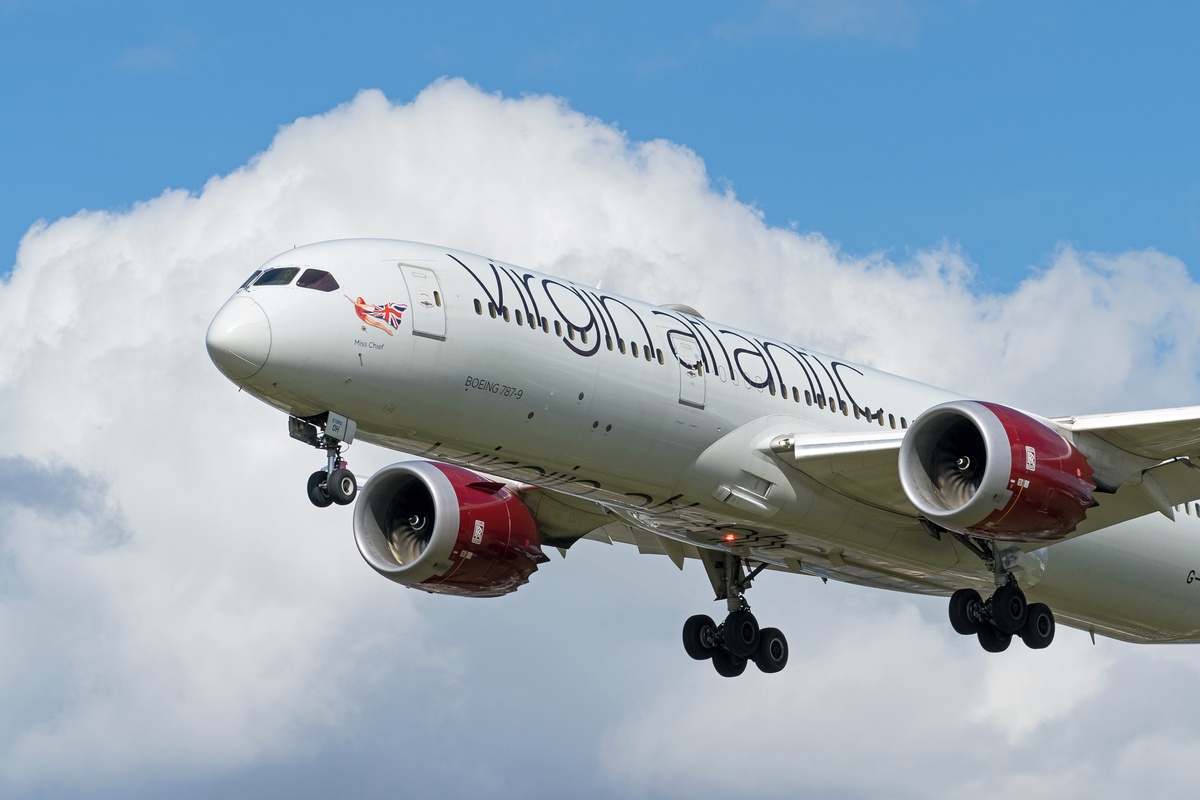Virgin Atlantic Warns of Slowing U.S. Demand

Skift Take
After almost a decade of consecutive losses, Virgin Atlantic announced a pre-tax profit Monday. The British carrier reported a profit before tax and exceptional items of £20 million ($25.9m) for 2024. This is a marked improvement on its £139m ( $179.9m) loss a year earlier.
Shai Weiss, the airline’s chief executive praised the result, describing it as “a turning point for Virgin Atlantic and the culmination of our transformation.” Weiss said it was a big step forward in making the company "sustainably profitable."
However, it was comments from its chief financial officer that caught the attention of analysts. Speaking after the publication of the results, Oli Byers said trading in the January-March quarter of 2025 was “very strong,” however, he cautioned that the U.S. market may be cooling.
“In the last few weeks, we have started to see some signals that U.S. demand has been slowing," Byers is quoted by Reuters, adding: “We think that is quite a natural reaction to general consumer uncertainty.”
Without quantifying the scale of the slowdown, Byers said any decline in American bookings would come from a high base. Demand for travel between the U.S. and Europe has boomed in the post-pandemic years – particularly in premium cabins where Virgin has a strong offering.
Despite cautioning on U.S. demand, the airline said it still hopes to increase its overall revenue from U.S. bookings this year.
'We Are Watching'
Byers’ comments follow fresh insights from the CEO’s of Europe’s three largest long-haul airlines. Speaking in Brussels on Thursday, the heads of Air France-KLM, Lufthansa Group, and IAG all offered their perspective on possible softness in travel between Europe and the United States.
It followed speculation that recent policy shifts in Washington and economic uncertainty could dampen demand.
“Meeting here in March 2025, we probably all agree something is happening out there. Globalization is changing,” warned Carsten Spohr, CEO of Lufthansa Group, of the broader international outlook.
Asked specifically about the health of the transatlantic market, Ben Smith, CEO of Air-France KLM offered a measured perspective: “We’re not seeing anything as of today, but it is concerning for us and we are watching – as we do all markets – very, very closely. As of today, we don’t see any material change in terms of capacity. It is ‘as planned’ for us moving forward.”
Spohr highlighted the enormous capacity offered by European airlines and their U.S. partners this summer as evidence of a healthy – if fragile – industry: “There will never be more passengers on the transatlantic than this summer, so let’s not be misdirected from the obvious strains we have on the transatlantic relationship in political terms and economic terms.
"In terms of really measuring people having relations, interacting with friends and relatives, and spending a vacation across the Atlantic, the relationship has never been healthier than the summer of 2025,” added Spohr.
As its name suggests, much of Virgin Atlantic’s network is focused on transatlantic routes. It flies to 11 U.S. destinations ranging from New York to San Francisco, and Seattle to Miami.
A significant downtown in demand for travel to or from the United States would be problematic for the carrier, however the U.S. isn’t its only core market. Of its 78 daily departures, it also flies to the Caribbean, Africa, India, and the Middle East. Last week it launched new routes to Toronto and Riyadh.
Richard Branson’s Virgin Group owns 51% of the airline, with the remaining 49% owned by Delta Air Lines.
Airlines Sector Stock Index Performance Year-to-Date
What am I looking at? The performance of airline sector stocks within the ST200. The index includes companies publicly traded across global markets including network carriers, low-cost carriers, and other related companies.
The Skift Travel 200 (ST200) combines the financial performance of nearly 200 travel companies worth more than a trillion dollars into a single number. See more airlines sector financial performance.





